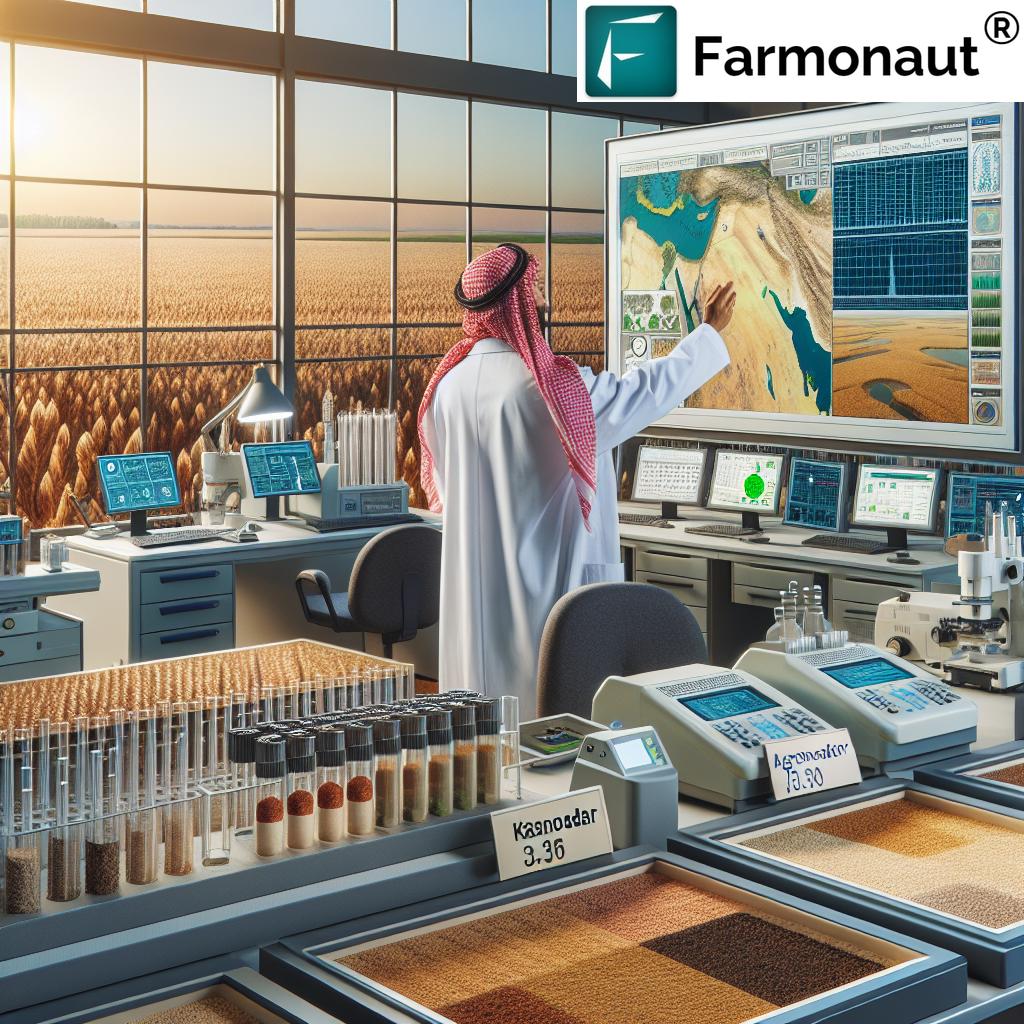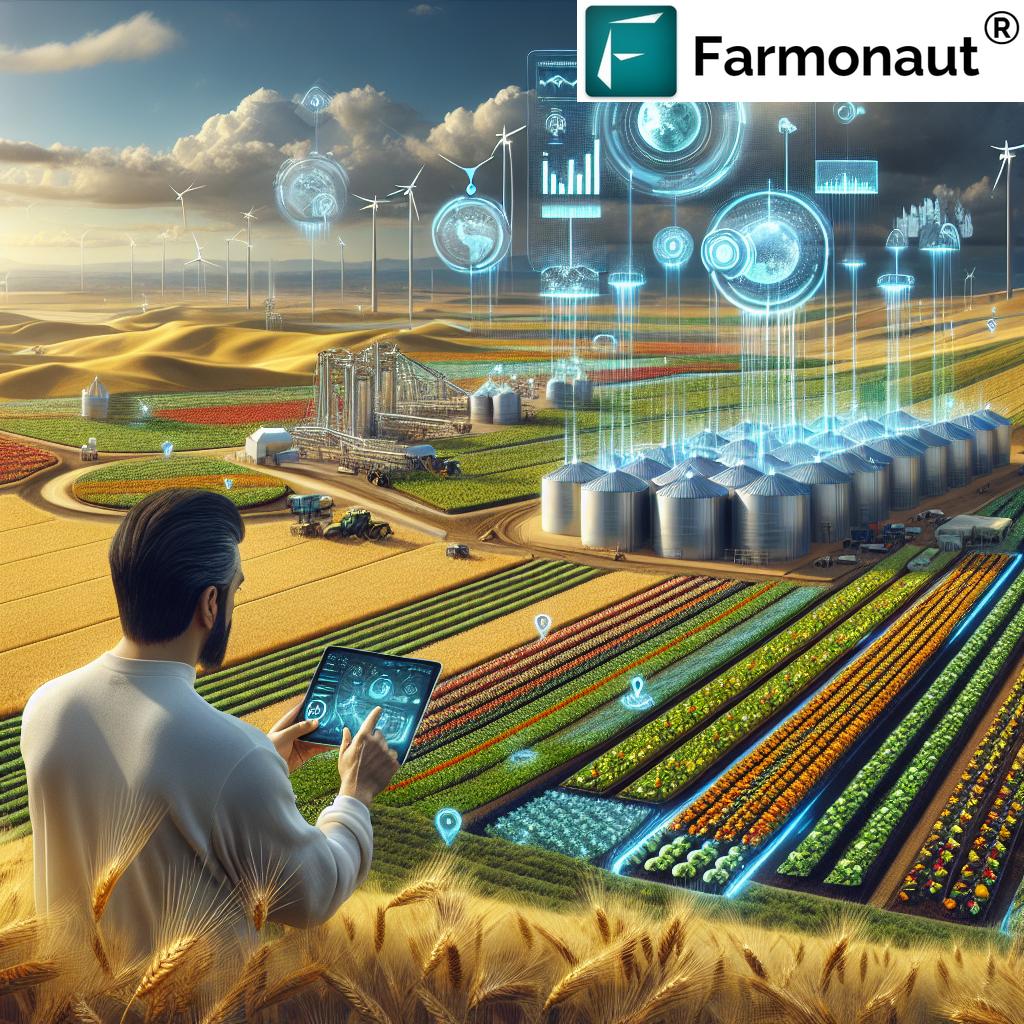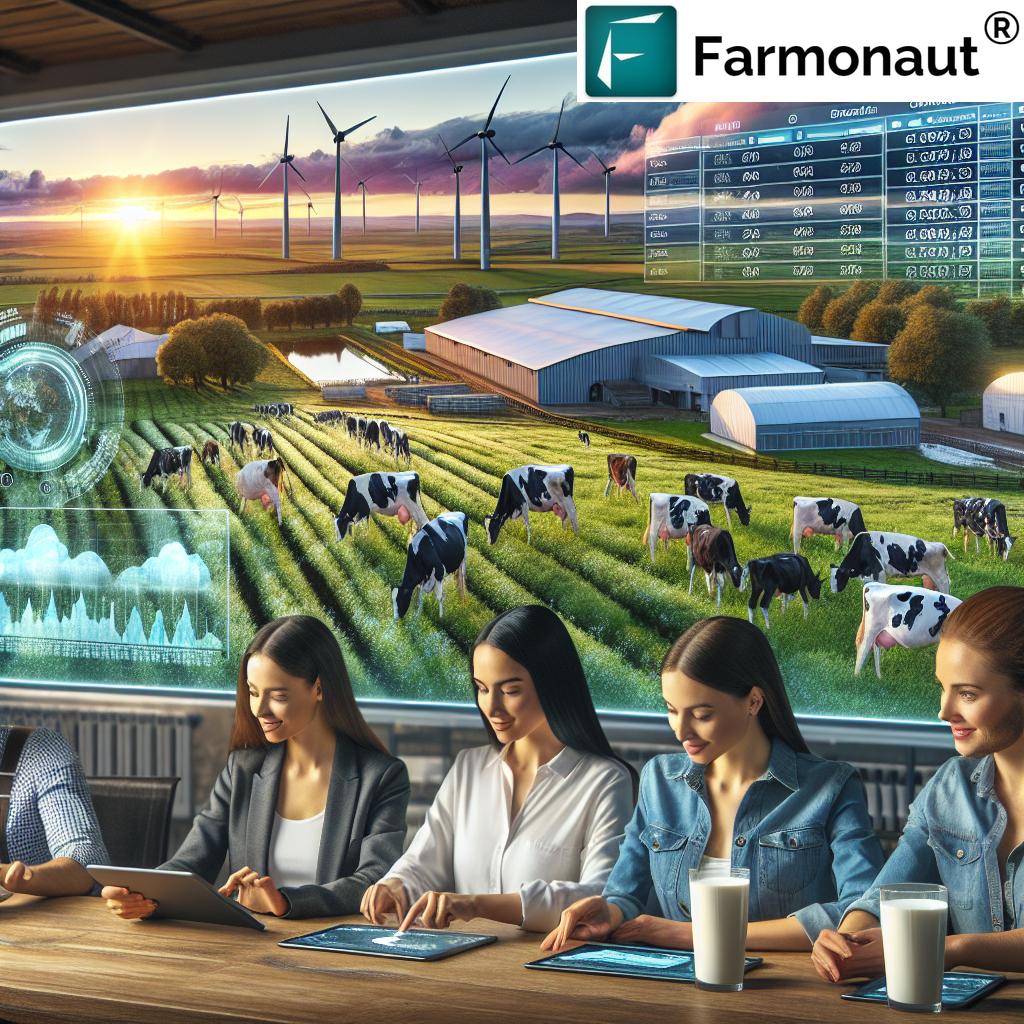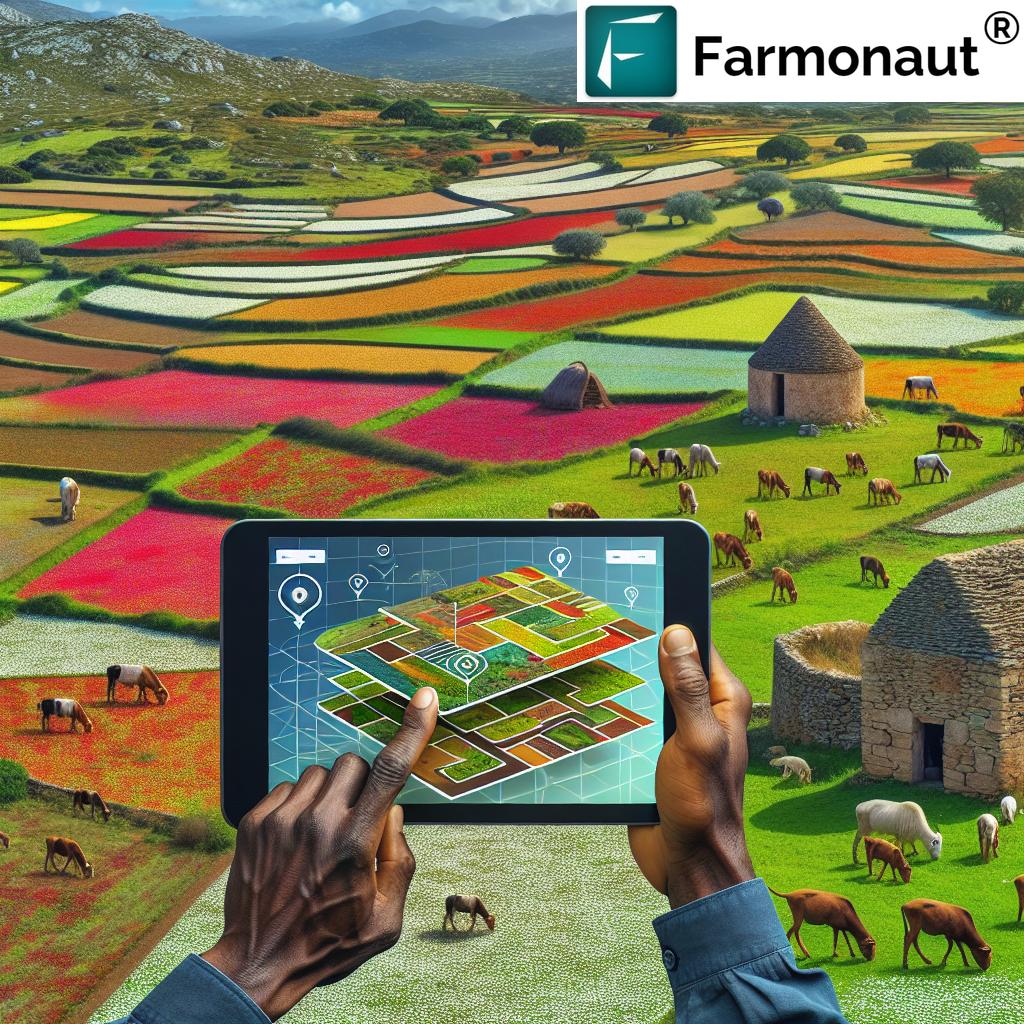Revolutionizing European Agricultural Cooperatives: Sustainable Farming Practices and Innovation in Romania’s Agri-Food Sector
“European agricultural cooperatives manage over 50% of the EU’s agricultural land, driving sustainable farming practices.”
In the heart of Europe’s agricultural landscape, a transformation is underway. As we delve into the world of European agricultural cooperatives, we witness a remarkable shift towards sustainable farming practices and cutting-edge innovation, particularly in Romania’s thriving agri-food sector. This blog post explores the revolutionary changes reshaping the face of European agriculture, with a special focus on the pivotal role of cooperative farming models in driving this evolution.

The Rise of Sustainable Farming Practices in European Agricultural Cooperatives
European agricultural cooperatives are at the forefront of adopting sustainable farming practices, setting new standards for the entire continent. These cooperatives, which manage a significant portion of the EU’s agricultural land, are embracing eco-friendly methods that not only boost productivity but also safeguard our environment for future generations.
- Precision Agriculture: Cooperatives are increasingly implementing precision farming techniques, utilizing advanced technologies to optimize resource use and minimize environmental impact.
- Organic Farming: There’s a notable shift towards organic production methods, with cooperatives leading the charge in expanding organic farmland across Europe.
- Water Conservation: Innovative irrigation systems and water management practices are being adopted to address water scarcity issues and improve efficiency.
- Biodiversity Preservation: Cooperatives are implementing measures to protect and enhance biodiversity on agricultural lands, recognizing its crucial role in sustainable ecosystems.
As we witness this green revolution in European agriculture, it’s crucial to recognize the role of technology in facilitating these changes. Farmonaut’s advanced agri solutions are at the forefront of this technological integration, offering innovative tools for precision agriculture and sustainable farm management.
Romania’s Agri-Food Sector: A Case Study in Innovation
“Romania’s agri-food sector contributes approximately 6% to the country’s GDP, highlighting its economic importance.”
Romania’s agri-food sector serves as a compelling example of how innovation and sustainable practices can transform traditional farming. The country’s agricultural landscape is experiencing a renaissance, driven by a combination of EU support, technological advancements, and a commitment to sustainable development.
- Digital Transformation: Romanian farms are increasingly adopting digital technologies, from IoT sensors to AI-powered analytics, to optimize crop management and resource allocation.
- Renewable Energy Integration: Many agricultural cooperatives in Romania are investing in renewable energy sources, such as solar and biogas, to power their operations sustainably.
- Precision Farming Techniques: The use of satellite imagery and drones for crop monitoring and precision application of inputs is becoming more widespread, improving efficiency and reducing environmental impact.
- Sustainable Supply Chains: Romania is pioneering blockchain-based traceability systems in its agri-food sector, enhancing transparency and consumer trust.
The transformation of Romania’s agricultural sector is a testament to the power of innovation in driving sustainable growth. As we explore these advancements, it’s worth noting how tools like Farmonaut’s API are enabling developers and businesses to integrate cutting-edge agricultural data into their systems, further accelerating innovation in the sector.
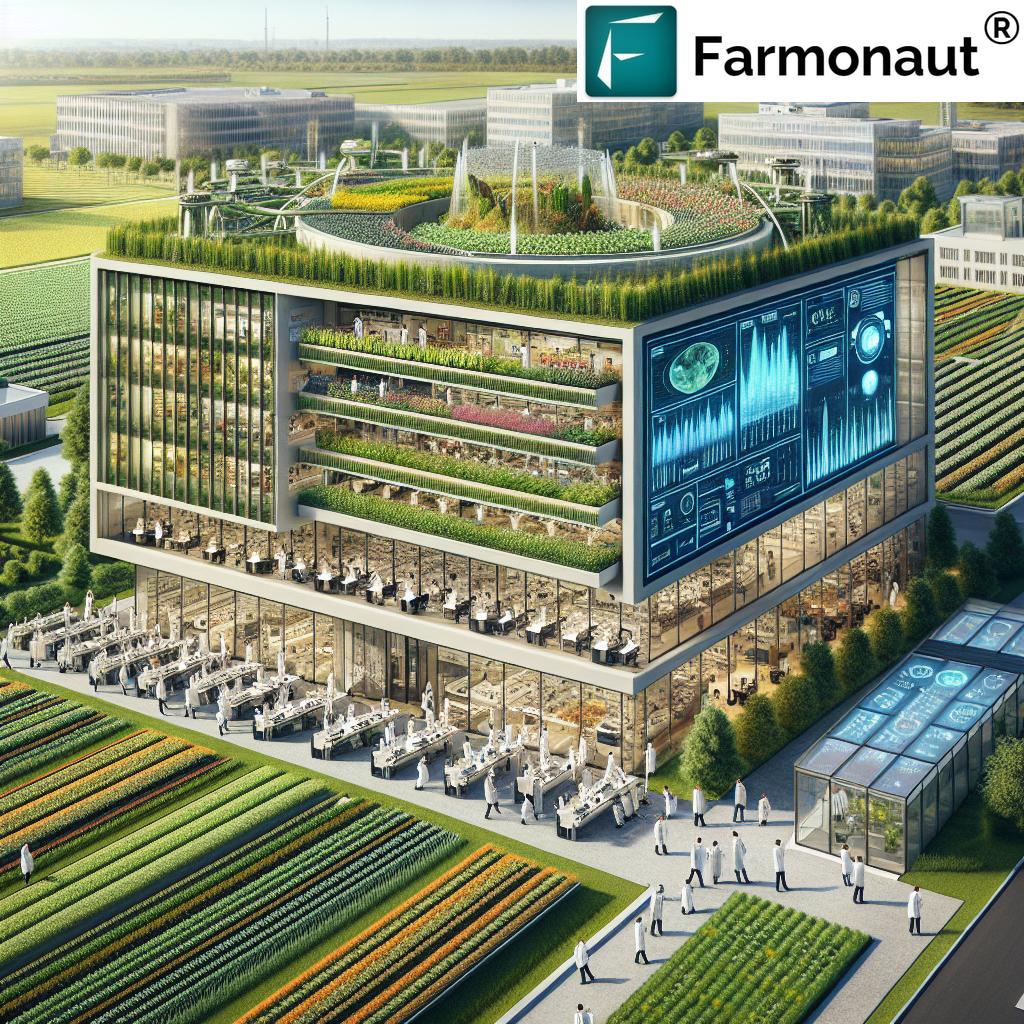
The Impact of Cooperative Farming Models on the European Agri-Food Sector
Cooperative farming models are proving to be a catalyst for change in the European agri-food sector. These models not only enhance the economic resilience of small and medium-sized farms but also facilitate the adoption of sustainable practices and innovative technologies at scale.
- Economies of Scale: Cooperatives enable smaller farms to access advanced technologies and resources that would be prohibitively expensive for individual farmers.
- Knowledge Sharing: The collaborative nature of cooperatives fosters the exchange of best practices and innovative ideas among farmers.
- Market Power: By pooling resources and production, cooperatives can negotiate better prices and access larger markets, improving the economic sustainability of farming.
- Sustainability Initiatives: Cooperatives are often at the forefront of implementing large-scale sustainability projects, from renewable energy installations to biodiversity conservation efforts.
The success of cooperative farming models in Europe demonstrates the power of collaboration in driving agricultural innovation. For those interested in exploring how technology can support these models, Farmonaut’s API Developer Docs offer insights into integrating advanced agricultural data into cooperative management systems.
Shaping the Common Agricultural Policy (CAP): The Role of Innovative Farming Practices
The evolution of European agricultural cooperatives and their adoption of sustainable practices are significantly influencing the direction of the Common Agricultural Policy (CAP). As the EU’s primary agricultural policy framework, the CAP is increasingly focusing on promoting environmentally friendly farming methods and supporting the digital transformation of agriculture.
- Green Direct Payments: The CAP now includes incentives for farmers adopting climate and environmentally friendly practices, aligning with the goals of many innovative cooperatives.
- Rural Development Programs: Increased funding for technology adoption and sustainable farming initiatives in rural areas is supporting the modernization of European agriculture.
- Young Farmer Support: The CAP is placing greater emphasis on attracting young farmers and fostering innovation, recognizing the crucial role of new generations in driving agricultural transformation.
- Research and Innovation: Significant resources are being allocated to agricultural research and innovation projects, many of which are led by or involve cooperative farming models.
The alignment between CAP objectives and the innovative practices of agricultural cooperatives is creating a powerful synergy for sustainable agricultural development across Europe. For farmers and cooperatives looking to leverage technology in aligning with CAP goals,  offers a suite of tools to support sustainable farming practices.
offers a suite of tools to support sustainable farming practices.
Agricultural Economics and Rural Development: A New Paradigm
The transformation of European agricultural cooperatives is ushering in a new era of agricultural economics and rural development. This shift is characterized by a more holistic approach that balances economic viability with environmental sustainability and social responsibility.
- Diversification of Income Streams: Cooperatives are exploring new revenue sources, such as agritourism and value-added processing, to enhance economic resilience.
- Circular Economy Principles: There’s a growing focus on minimizing waste and maximizing resource efficiency, aligning agricultural practices with circular economy concepts.
- Social Innovation: Cooperatives are increasingly involved in community development projects, fostering social cohesion and revitalizing rural areas.
- Digital Skills Development: Investments in digital literacy and training programs are empowering farmers to leverage new technologies effectively.
This evolving landscape of agricultural economics presents both challenges and opportunities for European farmers. To navigate this new terrain, many are turning to advanced technological solutions.  provides iOS users with powerful tools to optimize their farming operations in line with these new economic realities.
provides iOS users with powerful tools to optimize their farming operations in line with these new economic realities.
Crop Sector Management: Innovations in Sustainable Production
The crop sector is witnessing a revolution in management practices, driven by the need for sustainable production methods and the opportunities presented by new technologies. European agricultural cooperatives are at the forefront of implementing these innovative approaches.
- Precision Crop Management: Advanced sensors and satellite imagery are enabling highly precise application of inputs, reducing waste and environmental impact.
- Climate-Smart Agriculture: Cooperatives are adopting practices that increase resilience to climate change while reducing greenhouse gas emissions.
- Integrated Pest Management: Biological control methods and targeted interventions are replacing broad-spectrum pesticide use, promoting biodiversity and reducing chemical inputs.
- Crop Rotation and Diversification: Sophisticated planning tools are helping farmers optimize crop rotations for soil health and pest management.
These advancements in crop sector management are not only improving yields but also enhancing the overall sustainability of European agriculture. For those interested in implementing these innovative practices,  offers a comprehensive platform for sustainable crop management.
offers a comprehensive platform for sustainable crop management.
The Green Deal in Agriculture: European Cooperatives Leading the Way
The European Green Deal has set ambitious targets for the agricultural sector, aiming to make food systems fair, healthy, and environmentally friendly. Agricultural cooperatives are playing a pivotal role in realizing these goals, demonstrating how sustainable practices can be implemented at scale.
- Carbon Farming Initiatives: Many cooperatives are pioneering carbon sequestration practices, contributing to the EU’s climate neutrality goals.
- Biodiversity Enhancement: Cooperative-led projects are creating ecological corridors and restoring habitats on agricultural lands.
- Sustainable Food Systems: From farm to fork, cooperatives are implementing traceability and sustainability measures throughout the supply chain.
- Renewable Energy Adoption: Agricultural cooperatives are increasingly investing in renewable energy projects, both for their own use and as additional income streams.
The alignment of cooperative farming models with the objectives of the Green Deal is accelerating the transition to sustainable agriculture across Europe. To support this transition, tools like Farmonaut’s satellite-based farm management solutions are proving invaluable in implementing and monitoring sustainable farming practices.
The Future of European Agriculture: Trends and Projections
As we look to the future of European agriculture, several key trends are emerging that will shape the sector in the coming decades:
- Vertical and Urban Farming: Expect to see more integration of vertical farming techniques in urban and peri-urban areas, addressing food security and reducing transportation distances.
- AI and Machine Learning: Advanced AI systems will increasingly be used for predictive analytics in crop management, pest control, and resource allocation.
- Biotechnology Advancements: Sustainable biotechnology solutions, including CRISPR gene editing, may play a larger role in developing resilient and nutritious crops.
- Autonomous Farming Systems: The development of fully autonomous farming equipment will continue, potentially revolutionizing labor dynamics in agriculture.
- Climate Adaptation Strategies: As climate change impacts intensify, expect to see more sophisticated adaptation strategies implemented across European farms.
These trends point to a future where European agriculture is more technologically advanced, environmentally sustainable, and resilient to global challenges. The role of agricultural cooperatives in driving and implementing these changes will be crucial.
European Agricultural Cooperatives: Transformation Metrics
| Metric | Pre-Innovation Era | Current Status | 2030 Target | Impact on Sustainability |
|---|---|---|---|---|
| Renewable Energy Adoption (%) | 10% | 30% | 60% | High |
| Precision Agriculture Implementation (%) | 5% | 25% | 70% | Very High |
| Organic Farming Area (hectares) | 5 million | 13 million | 25 million | High |
| Digital Technology Integration (scale 1-10) | 3 | 6 | 9 | Medium |
| Carbon Footprint Reduction (%) | 0% | 15% | 40% | Very High |
| Crop Yield Improvement (%) | 0% | 10% | 25% | Medium |
| Water Use Efficiency (%) | 60% | 75% | 90% | High |
| Biodiversity Index (scale 1-10) | 4 | 6 | 8 | High |
| Farmer Income Increase (%) | 0% | 15% | 30% | Medium |
| CAP Compliance Score (%) | 70% | 85% | 95% | High |
Conclusion: A Sustainable Future for European Agriculture
The transformation of European agricultural cooperatives, particularly evident in Romania’s thriving agri-food sector, represents a paradigm shift towards sustainable, innovative, and resilient farming practices. As we’ve explored throughout this blog, the integration of cutting-edge technologies, the adoption of eco-friendly methods, and the power of cooperative models are driving this change.
From precision agriculture and organic farming to renewable energy adoption and digital integration, European farmers are embracing a future where productivity goes hand in hand with environmental stewardship. The role of supportive policies, such as the evolving Common Agricultural Policy, cannot be understated in facilitating this transition.
As we look ahead, the future of European agriculture is bright, with cooperatives leading the charge in implementing sustainable practices, leveraging innovative technologies, and adapting to the challenges of climate change. The journey towards a more sustainable and productive agricultural sector is well underway, promising a future where food security, environmental protection, and rural prosperity are harmoniously achieved.
For those looking to be part of this agricultural revolution, tools and platforms like Farmonaut offer invaluable support in implementing sustainable farming practices and leveraging the power of data-driven agriculture. As we continue to innovate and collaborate, the vision of a truly sustainable European agricultural sector becomes ever more attainable.
FAQ Section
Q: What are the main benefits of agricultural cooperatives in Europe?
A: Agricultural cooperatives in Europe offer numerous benefits, including economies of scale, shared resources and knowledge, increased market power, and the ability to implement large-scale sustainability initiatives more effectively.
Q: How are European agricultural cooperatives contributing to sustainable farming practices?
A: European agricultural cooperatives are at the forefront of adopting sustainable farming practices such as precision agriculture, organic farming, water conservation techniques, and biodiversity preservation measures. They also play a crucial role in implementing renewable energy projects and carbon reduction initiatives.
Q: What role does technology play in the transformation of European agriculture?
A: Technology plays a pivotal role in transforming European agriculture through the implementation of precision farming techniques, AI-driven analytics, IoT sensors for crop monitoring, blockchain for supply chain transparency, and advanced satellite imagery for resource management.
Q: How is the Common Agricultural Policy (CAP) supporting sustainable farming in Europe?
A: The CAP supports sustainable farming through green direct payments, rural development programs focused on technology adoption and sustainability, support for young farmers, and significant funding for agricultural research and innovation projects.
Q: What are some of the challenges facing European agricultural cooperatives in their transition to sustainable practices?
A: Challenges include the initial costs of technology adoption, the need for extensive training and education, adapting to changing climate conditions, balancing productivity with environmental goals, and navigating complex regulatory environments.









